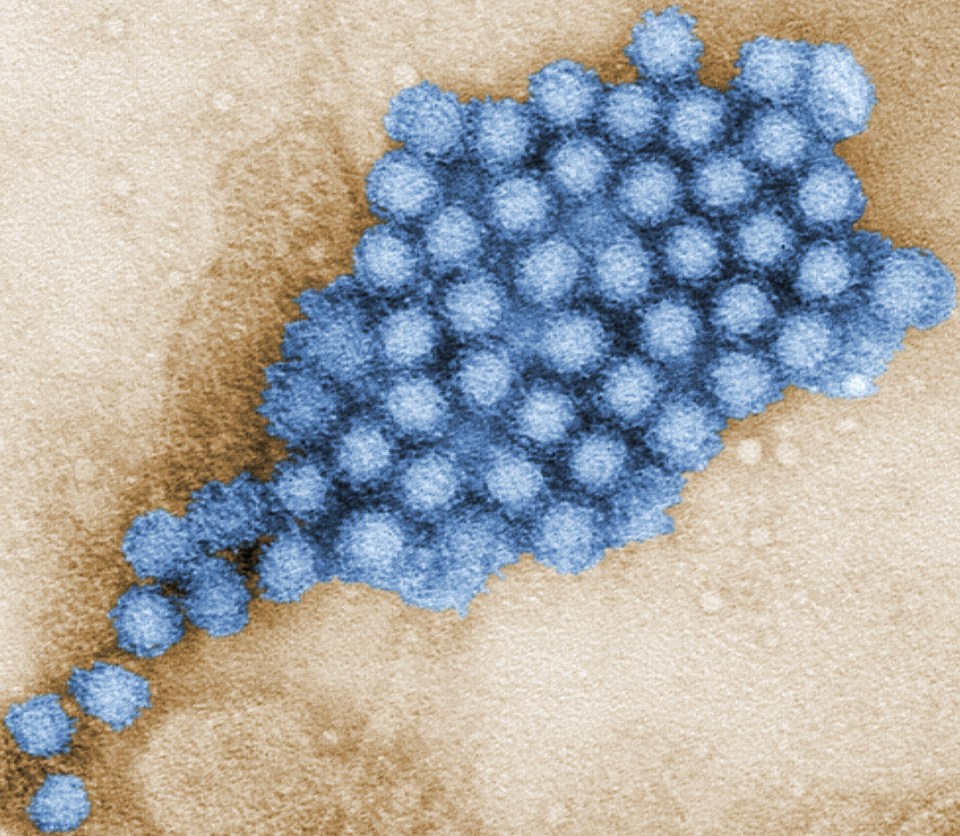It can evade disinfectant, trigger IBS and reinfect you – 5 things you might not know about norovirus

PUBLIC places are a breeding ground for the highly contagious bug that infects 685 million people across the world every year.
Despite it's aggressive nature, there is no specific treatment for norovirus meaning the condition, also known as the winter vomiting bug, is particularly dangerous for the elderly and very young.
The horrendous illness causes vomiting and diarrhoea, and is one of the most common stomach upsets in the UK.
Though it can leave you feeling like hell, you don't often need to go to your doctor.
Rather, you can ease your symptoms by ensuring you're well hydrated, get plenty of rest and eat plain foods.
Here, we reveal five key facts about the virus.
1. People can spread norovirus for months
The grim bug can evade even the hardiest of disinfectants, and with an average 1.2-day incubation period it can spread very quickly.
Although symptoms such as abdominal pain, nausea, vomiting and diarrhoea typically resolve in one to four days - it is possible for a person to shed the virus before signs of the bug appear, as well as after a person begins to feel better.
Norovirus is extremely contagious and so washing your hands frequently is important
Dr Megan Baldridge
Viral shedding describes the expulsion and release of viral material after it infects a cell.
This can occur for a few months in healthy individuals and for years in patients with a weak immune system.
The severity of symptoms doesn't match up with viral shedding, which can make protecting against the virus very difficult.
2. In a norovirus hotspot? Wash your hands
The winter vomiting bug thrives in crowded public areas.
Outbreaks spread when people eat or drink contaminated food, touch infected surfaces or come into contact with someone who is shedding the virus.
Dr Megan Baldridge, a pathogens and microbiome expert at Washington University School of Medicine in St Louis, said: "Norovirus is extremely contagious and so washing your hands frequently is important.
"If you start to feel symptoms, avoid preparing food for other people and be careful to clean any surfaces that might be contaminated with bleach."
Related Stories
3. Some of us are at greater risk than others
There are many different strains of norovirus, which means people can be infected many times in their lifetime.
The infection is different for each sufferer and how a person reacts depends on their genes.
Dr Baldridge said: "Healthier people may get the virus and have uncomfortable, unpleasant symptoms for a few days, but those symptoms will resolve quickly.
"What can happen with people who are immunocompromised (those with a weak immune system) is that they can have a chronic debilitating infection that can be highly detrimental."
4. A gateway to other gut problems
Norovirus has been suggested as a possible trigger for other gut diseases, including irritable bowel syndrome (IBS) and inflammatory bowel disease (IBD).
Under certain conditions, norovirus infection may also alter normal resident intestinal bacteria and allow other infections to occur.
Although there is much research to be done regarding the causes of different gut diseases, we know that various pathogens can affect how the virus reacts and these reactions may trigger other intestinal problems.
If you start to feel symptoms, avoid preparing food for other people and be careful to clean any surfaces that might be contaminated with bleach
Dr Baldridge
"We're just starting to understand how there's a very complex interplay between norovirus infection and all the other different pathogens and commensal bacteria that could be present," Dr Baldridge said.
"These factors likely have very complex interactions with the gut."
5. There is no vaccine, but new strategies are on the horizon
Vaccine and treatment research has been limited because of a lack of understanding of norovirus within humans, but recent discoveries in mice have identified that certain biological factors can slow down or kill the virus.
Dr Baldridge said: "Up until now vaccines have exclusively been using virus-like particles, but some new developments may make it possible to generate a live attenuated vaccine, which is pretty exciting.
"Having animal models and cell culture models to grow the virus and study how it acts a little more closely will help us better understand the virus and also think more about vaccination strategies."








